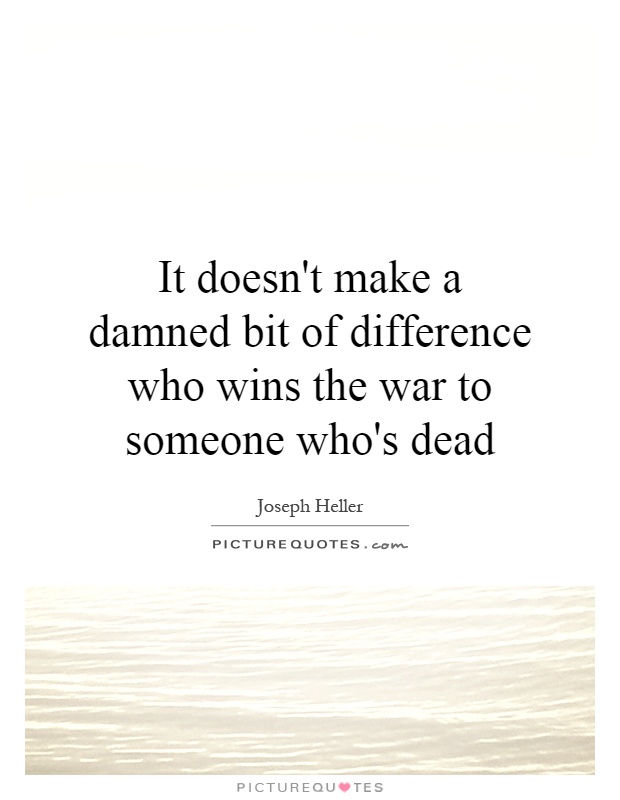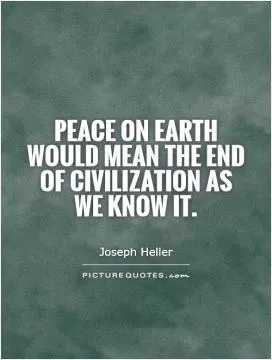It doesn't make a damned bit of difference who wins the war to someone who's dead

It doesn't make a damned bit of difference who wins the war to someone who's dead
In Joseph Heller's iconic novel, "Catch-22," the quote "It doesn't make a damned bit of difference who wins the war to someone who's dead" encapsulates the absurdity and futility of war. Set during World War II, the novel follows the experiences of Captain John Yossarian, a bombardier in the U.S. Army Air Forces, as he navigates the madness and chaos of war.Throughout the novel, Heller explores the senselessness of war and the dehumanizing effects it has on those who are forced to participate in it. Yossarian and his fellow soldiers are caught in a never-ending cycle of violence and death, where the ultimate goal of victory seems increasingly irrelevant in the face of the constant loss and suffering they endure.
The quote highlights the idea that the outcome of the war is ultimately inconsequential to those who have been killed in the process. Whether one side emerges victorious or not, the fact remains that countless lives have been lost and families torn apart. The true cost of war is measured not in terms of territory gained or lost, but in the human toll it takes on those who are forced to fight in it.
Heller uses dark humor and satire to critique the absurdity of war and the bureaucratic incompetence that often accompanies it. The character of Colonel Cathcart, who continually raises the number of missions required for his men to complete before they can be sent home, exemplifies the callous disregard for human life that can arise in the pursuit of victory.
Ultimately, Heller's novel serves as a powerful indictment of the senselessness of war and the ways in which it devalues human life. The quote "It doesn't make a damned bit of difference who wins the war to someone who's dead" serves as a stark reminder of the true cost of conflict and the need to strive for peace and understanding in the face of violence and destruction.












 Friendship Quotes
Friendship Quotes Love Quotes
Love Quotes Life Quotes
Life Quotes Funny Quotes
Funny Quotes Motivational Quotes
Motivational Quotes Inspirational Quotes
Inspirational Quotes